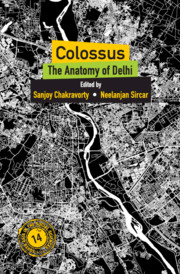8 - Religion, Caste, Class, Politics: How Urbanization Affects Social Interactions and Political Behaviors
Published online by Cambridge University Press: 31 July 2021
Summary
Introduction
What are the impacts of urbanization on social identities and social cleavages in India? It is now widely accepted that urbanization is as much a social process—transforming behavior, culture, and social institutions over time—as it is an economic and spatial process. Urbanization transforms core societal organizations such as the family, the nature and density of social interactions, the nature of work and diversity of occupations, and individual freedoms and personal autonomy. Cities are sites of social change that offer possibilities for social mobility by disrupting the social stratifications of rural societies. While the degree and rate of urbanization in India is contested, there are multiple questions on the country's urban future, ranging from the drivers and pace of this urbanization, settlement type, and economic foundations. However, the question of the impacts of urbanization on social identities, attitudes, and hierarchies has not been widely explored.
Severe social cleavages—caste and class, region and religion, gender and generational—continue to characterize Indian society. Discussions and analysis of these cleavages have occurred against a backdrop of an India that was overwhelmingly rural. But as India rapidly urbanizes, these social cleavages are likely to evolve. While some might attenuate, others could amplify and yet others may well transform. What factors might influence this evolution and what mechanisms might shape urbanization's effects on social identities? In India's case, how are these mechanisms likely to evolve? Our analysis of data from the National Capital Region (NCR) offers some insights into these questions.
We argue that at least some social cleavages are blunted through the processes of urbanization. Urban areas tend to have more heterogeneous populations resulting in greater exposure to nontraditional attitudes. This greater exposure has the potential to attenuate inter-household cleavages based on caste and religion and intra-household cleavages based on gender. Our results suggest that increases in wealth increase social interactions across different social groups, which might thereby soften caste- and religion-based cleavages. However, a wealth increase in and of itself does not have a similar liberalizing effect on gender norms.
- Type
- Chapter
- Information
- ColossusThe Anatomy of Delhi, pp. 221 - 250Publisher: Cambridge University PressPrint publication year: 2021
- 1
- Cited by



